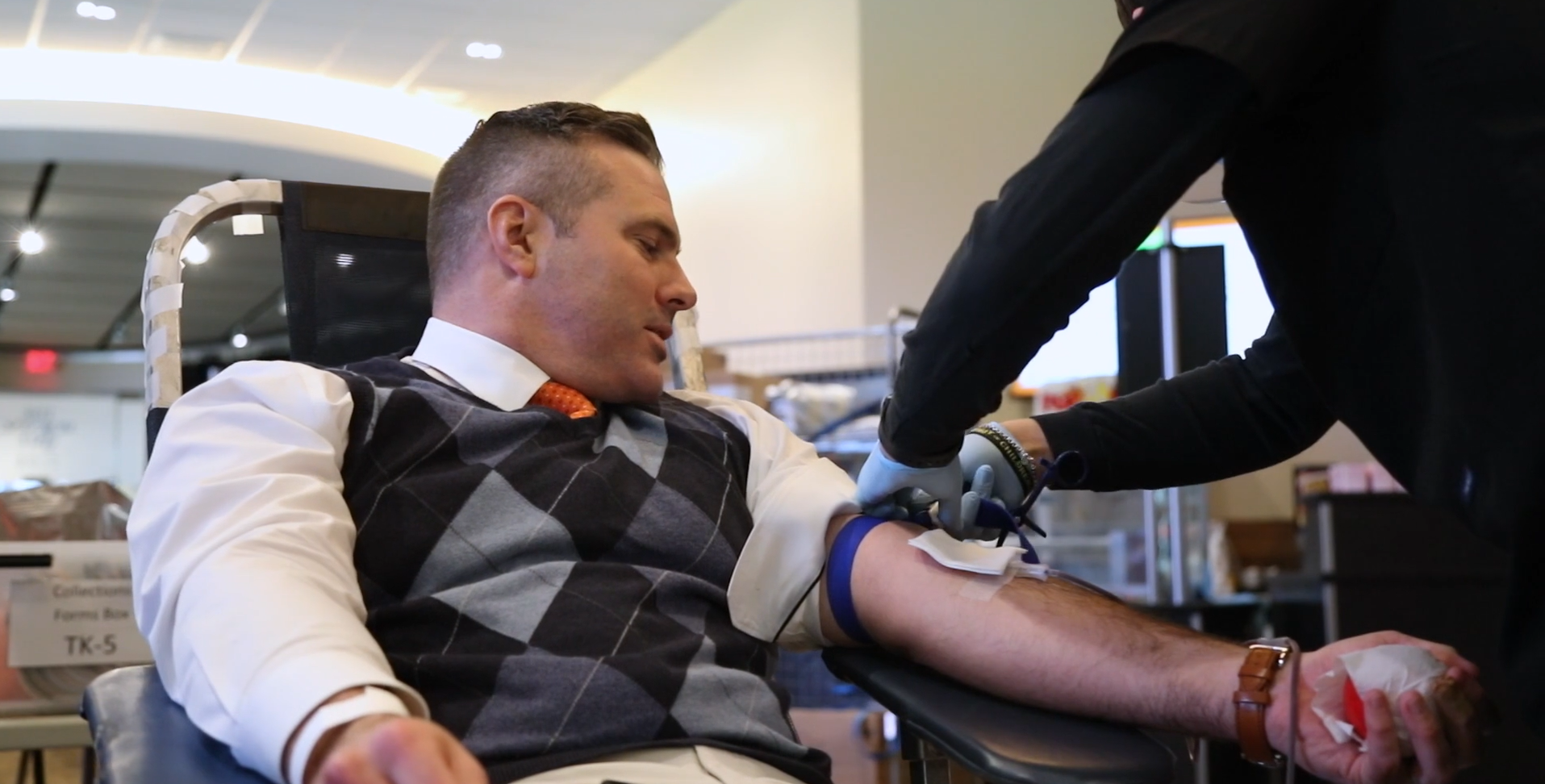
Often times, the hardest part about deciding to donate blood is overcoming the fear of the needle stick. Many people actually decide to donate to help get over their fear of needles. The actual drawing process should cause very little, if any, discomfort. The finger prick during the preliminary interview process (required to test your iron level) is usually the only slight discomfort encountered by a blood donor.
Despite 37% of the US population being eligible to donate blood, only 3% actually do, leading to frequent shortages at blood centers nationwide. In our region, where over 350 units of blood are needed daily for transfusion patients in area hospitals, the urgency is evident. With whole blood lasting 42 days and platelets, crucial for cancer and burn patients, having a mere 7-day shelf life, a consistent influx of donors is essential to secure a safe and ample blood supply for all.
Blood centers often run short of type O, A and B blood, but shortages of all types occur during the summer and winter holidays. If all eligible donors gave at least twice a year, it would help prevent blood shortages.
Blood constitutes 7% of your body weight, roughly 2 pints per 25 pounds. After the whole blood donation, wait 56 days for a complete replenishment. Platelets every 8 days, up to 24 times yearly, plasma every 4 weeks, and automated red cells every 112 days.
Many health conditions do not prevent people from donating blood, and the deferral criteria for blood donors is constantly changing, which means that if you were turned down for donation in the past, you may now be eligible to donate. Click here for our general eligibility guidelines.
Throughout the donation process, we conduct a mini-medical check-up and ask mandatory questions, as required by the FDA, to verify donor eligibility for our community blood supply. Rest assured, all equipment used is sterile and disposable, including the needle, which is discarded in a designated biohazard container immediately after the donation. Thus, there is no risk of contracting diseases, including AIDS, through blood donation.
Donating blood is safer today than it has ever been before. Blood centers follow 5 layers of safety procedures:
There are many reasons why you might be deferred from donating blood. Some of these deferrals are permanent, while many of them are only temporary. The deferral criteria for blood donors is constantly changing, which means that if you were turned down for donation in the past, you may now be eligible to donate!
The minimum hematocrit (iron) level to donate blood is 12.5 for females and 13.0 for males. If you are deferred for low hemoglobin, your collections specialist can review ways in which to increase your iron level. In many cases, your iron level can be increased significantly by some simple changes to your diet.
Immediately after your blood donation, you will also be asked to spend a 15 minutes in our canteen area, where you will be served refreshments, cookies and other snacks. This will help replenish some of the sugar and liquids in your body, and help us to ensure that you are feeling well after your donation.
If you, a family member, a co-worker, a neighbor or a friend were in need of a blood transfusion, would you want to hear this excuse? Donating blood is safe and easy, and takes less than an hour. A single blood donation can help as many as three different people! In what other activity can so little time do so much?
©2024 Miller-Keystone Blood Center is an affiliate of Hospital Central Services | Privacy Policy I Terms of Use I Site By: DAY Vision Marketing